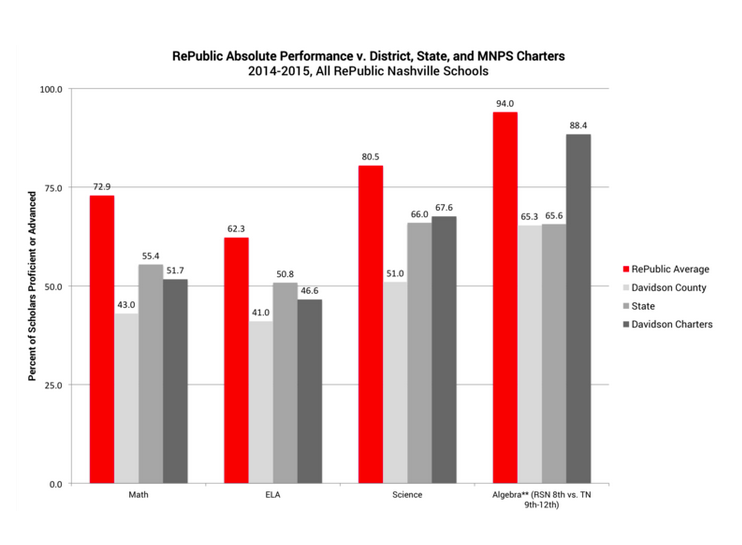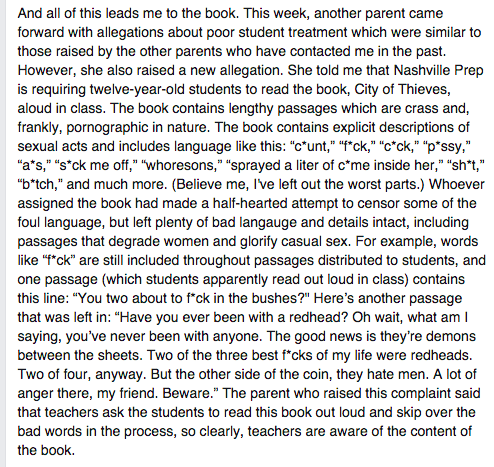Stand for Children was recently dragged through months of hearings after a politically motivated complaint was filed alleging they broke campaign finance laws. Earlier this month they were unanimously cleared of wrongdoing.
According to a new editorial by Daniel O’Donnell, it seems likes Stand for Children is looking ahead to a new year where they can return their focus on improving Nashville’s education.
There is a lot to be optimistic about in Nashville’s public schools these days. But the fact remains that a great public education remains out of reach for far too many Nashville students. In recent years, the achievement gap between kids from low-income families and their privileged peers has widened significantly; only 11 percent of Nashville graduates are considered “college-ready.”
Let that sink in. Behind those numbers are real kids with real lives – kids who deserve urgency and focus from adults.
Nashville spends an enormous amount of time debating public charter schools, and that debate no doubt colored the recent school board races. The prevailing charter narrative notwithstanding, Stand advocates for strong public schools, regardless of type.
Our record here has been consistent: In recent years we’ve fought for high-quality pre-Kindergarten expansion, high academic standards and topnotch district leadership. As a city, we should be doing more to support and learn from some of our incredible charter schools, while doing a lot more to lift up the schools that the other 90 percent of students attend. It’s really not that complicated.
Since the August election, we’ve been working with hundreds of parents in North and East Nashville to tackle one of the biggest challenges facing our school system: below-average third-grade literacy rates. Ensuring more third-graders are on track is one critical component of a larger effort to close Nashville’s achievement gap.
You can read the rest of the editorial here.
I agree with O’Donnell that we spend too much time fighting over charter schools when we could be spending that same amount of time on the abysmal literacy rates of our students. Let’s focus on all the students in our district and work together to make MNPS better.
Teachers collaborate every day to do what’s best for students. It’s time for organizations, school board members, and district leaders to collaborate to help all of our students.




